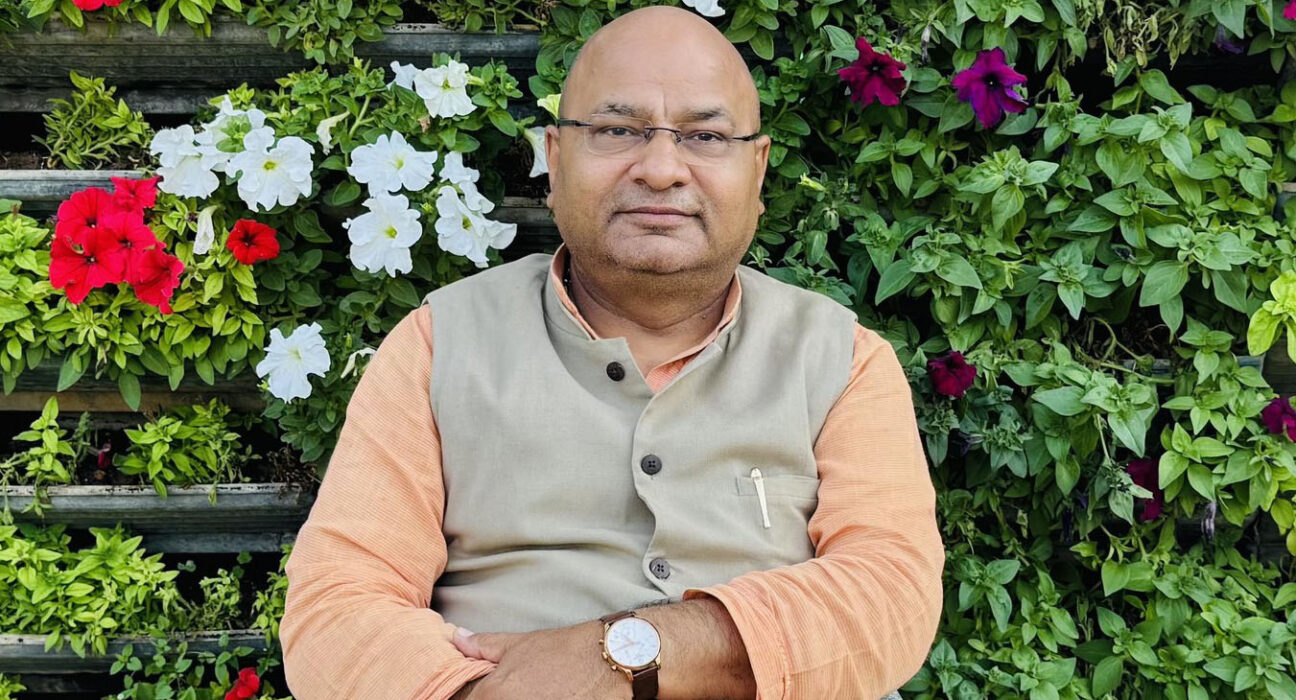On September 5, Constitutional Club to Celebrate the Green Vision of Y.P. Singh, India’s Environmental Sentinel

New Delhi: On September 5, 2025, the hallowed halls of the Constitutional Club in the heart of the nation’s capital will witness a celebration that goes beyond speeches, ideologies, and intellectual exchange. The occasion is a seminar hosted by the Kamla Gram Vikas Sansthan, titled “Linguistic Democracy and Indian Educational Traditions.” Yet, alongside its academic deliberations, the event will shine a spotlight on an individual whose work has quietly but profoundly reshaped India’s relationship with its natural environment.
That individual is Y.P. Singh—a man who has not just planted trees, but has planted ideas, nurtured a movement, and turned environmental stewardship into a mission of life. On this day, Singh will be felicitated for his extraordinary contribution to environmental conservation, a recognition of decades of dedication to keeping India green amidst the rising tide of urbanization and concrete landscapes.
From Nurseries to a National Movement
Y.P. Singh stands at the helm of the Indian Nurserymen Association (INA), a body that has existed for nearly four decades. Founded as a platform to bring together nursery owners and horticultural entrepreneurs, INA had long been a respected yet modest association. However, when Singh assumed leadership in 2018, the organization experienced a transformation.
Singh envisioned INA not merely as a trade association, but as a nationwide force with a broader social purpose. Under his leadership, the INA expanded its reach to virtually every Indian state, building a network that connected village-level nurseries with large-scale urban plantations. Today, INA is more than an association—it is a family bound by a shared commitment to green India’s future.
The significance of Singh’s work lies in his ability to elevate a profession often seen as small-scale and localized into a national mission. For Singh, every nursery is not just a business, but a custodian of climate resilience, and every sapling planted is an investment in the survival of future generations.
The Larger Message: Hope in Every Sapling
At a time when discussions around climate change, rising global temperatures, and deteriorating air quality dominate policy circles, Singh’s approach is refreshingly rooted in action over rhetoric. His philosophy is simple yet profound: every sapling is a solution.
Nurseries under INA’s umbrella now supply millions of plants annually, each one contributing to the fight against deforestation and carbon emissions. From roadside plantations in bustling cities to community-driven greening drives in remote villages, Singh’s network has proven that collective small actions can yield big environmental outcomes.
The Kamla Gram Vikas Sansthan’s decision to honor Singh is therefore more than just recognition of one man’s efforts. It is an acknowledgment of the silent revolution being carried out by thousands of nurserymen, gardeners, and farmers across India—those unsung heroes whose hands remain soiled with earth as they build a greener tomorrow.
Education, Roots, and the Environment
The theme of the seminar—“Linguistic Democracy and Indian Educational Traditions”—may at first glance appear removed from the world of plants and nurseries. Yet, the decision to couple this intellectual discourse with Singh’s felicitation carries symbolic weight.
True education in the Indian tradition has always been holistic, deeply connected to the rhythms of nature. Ancient gurukuls emphasized not only language, philosophy, and science but also reverence for the natural world. In honoring Y.P. Singh within this academic framework, the organizers are reinforcing the message that sustainable development and environmental responsibility are as central to education as literacy and scholarship.
This intertwining of knowledge and nature underscores a vital truth: progress divorced from the environment is no progress at all.
A Broader Reflection: Why This Matters Now
The timing of this recognition could not be more pertinent. India is at a crossroads—struggling to balance rapid urbanization and economic expansion with its commitment to sustainability. Cities are expanding at an unprecedented pace, swallowing farmland and green cover, while air quality indices in major metros regularly cross hazardous levels.
In this context, the work of Singh and his INA colleagues serves as a counter-narrative to unchecked development. By strengthening nursery networks, encouraging plantation drives, and popularizing the culture of tree planting, Singh is not only addressing an ecological crisis but is also creating livelihoods.
Each nursery nurtures not just plants but also provides employment, fosters local economies, and instills community pride. Environmentalism, in Singh’s vision, is not merely an elite discourse but a grassroots-driven movement that touches everyday lives.
September 5: A Celebration Beyond an Award
When Singh steps onto the stage of the Constitutional Club on September 5, the applause will not be just for him. It will resound on behalf of millions of invisible contributors—the nursery owners in small villages, the workers who water saplings under the harsh sun, the volunteers who plant trees on barren land, and the communities that care for them until they grow into towering symbols of resilience.
The day will be a collective salute to green warriors who rarely make headlines but who, in their quiet dedication, shape the destiny of a nation.
The Legacy Ahead
For Singh, the honor is not an endpoint but a milestone. The challenge of reversing environmental damage remains monumental, but his journey illustrates how consistent, grassroots-driven initiatives can build momentum. His leadership shows that the fight against climate change is not only waged in global conferences but also in nurseries, villages, and everyday acts of planting and protecting.
As India reflects on its educational and democratic traditions during the seminar, Singh’s recognition will serve as a reminder that the deepest lessons are often taught by nature itself. Our roots, quite literally, lie in the soil, and it is by nurturing them that we secure a future worth inheriting.
On September 5, the Constitutional Club will not merely host an academic seminar. It will become a symbolic arena where words and action converge, where scholarship meets sustainability, and where the life’s work of Y.P. Singh is celebrated as both an individual achievement and a collective triumph.
In honoring him, India honors every hand that has tilled the soil, every sapling that has been planted in hope, and every effort—no matter how small—that keeps the dream of a greener, healthier, and more sustainable nation alive.










